pH Pharma announced proof-of-concept (POC) study results on an antibody-drug conjugate (ADC) containing PH1, pH Pharma’s novel toxin payload, at the Association for Cancer Research Annual Meeting April 10-14th, 2021 (AACR 2021). The study demonstrated the potential of PH1 as a potent anti-cancer warhead with immune-stimulatory effects.
Highlights:
Promising platform opportunity to develop best-in-class and first-in-class ADC products
- PH1 splicing modulator is a “next-gen” ADC payload with immuno-stimulatory features
- ADCs with PH1 payload generate neoepitopes; combined with checkpoint inhibition, they may have potent anti-tumor activity with the potential for a wide safety margin that may offer promising future therapies in difficult-to-treat cancers
- Platform serves a need in ADC therapeutic field – payloads with novel mechanisms of action to overcome emerging resistance to tubulin payloads
- Payload platform is on track to enable multiple next-gen differentiated ADC products and partnerships
- Next Gen ADCs with Novel Payloads are commercially relevant and a growing presence
“Development of a splicing modulator-based ADC payload class with immune stimulatory properties for cancer therapy” (link)
Presenter: Satyajit K. Mitra, Ph.D., Abstract #: 1832
Background: Thailanstatins are naturally occurring anti-proliferative compounds that target spliceosomes and modulate pre-mRNA splicing. Alterations in splicing machinery and mRNA splicing is common in cancer and represents a potential susceptibility that can be exploited by targeted delivery of a splicing modulator to tumors with antibody drug conjugates (ADCs).
Results: PH1 payload is a novel derivative of Thailanstatin optimized for metabolic stability and anti-tumor activity. PH1 is an efficient modulator of splicing in vitro and in vivo and a poor substrate for the MDR1 transporter. Transcriptome analysis of PH1- treated NCI-N87 cells revealed multiple classes of mis-splicing events including elevated expression of transcripts with skipped exons (3364 genes/ 4x change) and retained introns (332 genes/ 2.5x change). Translation of transcripts with retained introns and novel exon-exon junctions results in generation of neoepitopes.
Upon conjugation to Trastuzumab, Tras PH1 ADC exhibited nanomolar potency specific to HER2-expressing cancer cells, with durable anti-tumor response in vivo and favorable pharmacokinetic exposure in mice. Due to the potential for generation of neoepitopes, combination studies of Tras PH1 with a checkpoint inhibitor antibody was performed in a syngeneic MC38-HuHer2 model. Single agent and combination treatments induced tumor recruitment of CD11b+ positive myeloid cell subsets. While the combination treatment eradicated tumors, the treated animals also developed tumor-specific immunity.
A toxicology study performed in cynomolgus monkeys confirmed favorable PK profile and a wide safety margin for Tras PH1 ADC.
Conclusions: We present the development of a splicing modulator-based payload class with the ability to target tumor mRNA splicing, induce tumor neoepitopes, recruit myeloid cells and generate anti-tumor immunity. These findings support the development of ADCs using this novel class of immunostimulatory payload.
Download: AACR 2021 e-Poster
